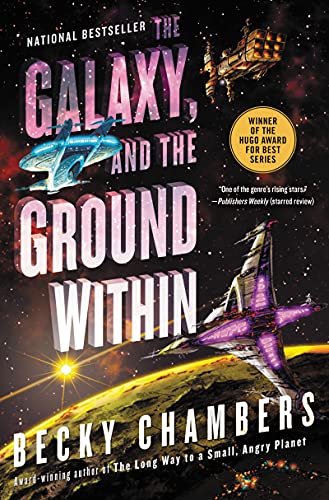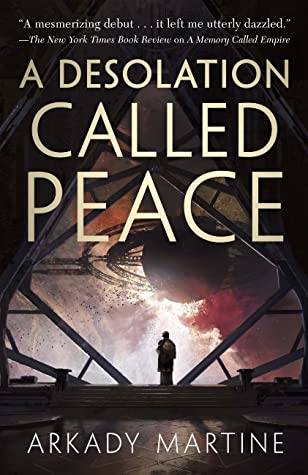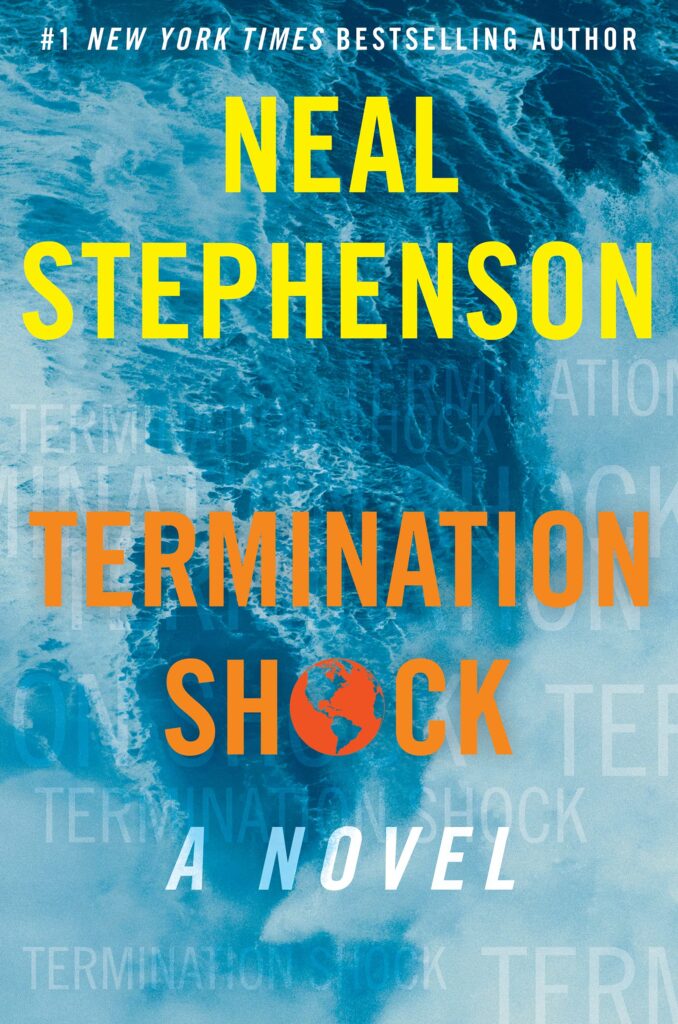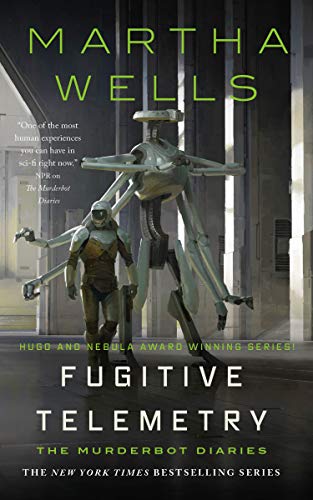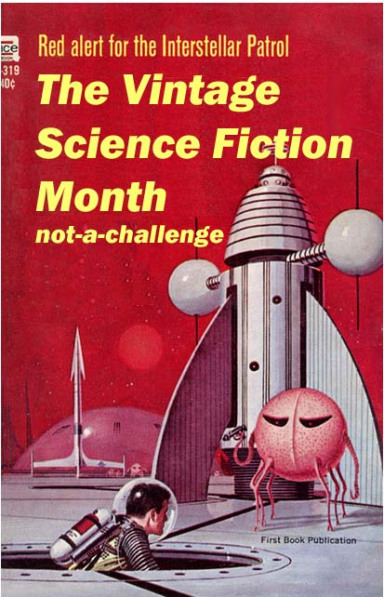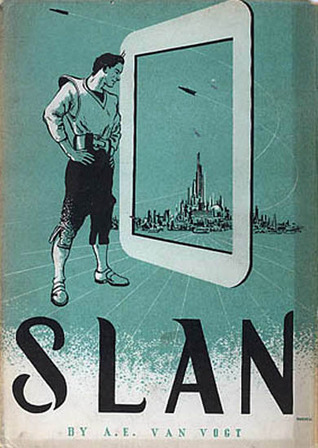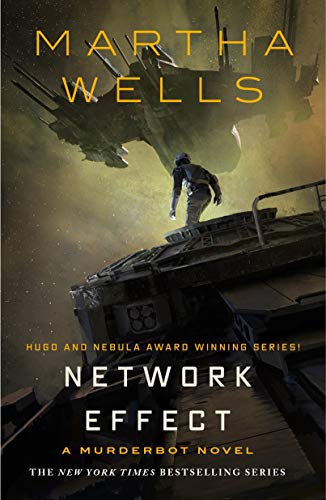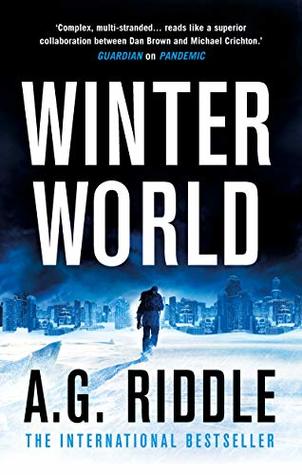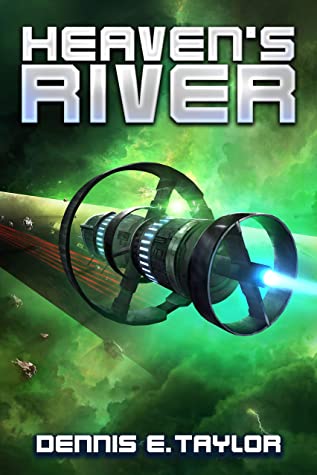SF Book Review – Part 40: 2022 Hugo Awards Fantasy Finalists
I’ve been playing along with the 2022 Hugo Awards and it’s time to take a look at the Fantasy novel finalists (the ballot is split evenly between fantasy and science fiction, and we’ve already covered the SF novel finalists in another post). For the record, I do tend to lean more towards science fiction than fantasy, so you’ll need to take what follows with the appropriate boulder of salt.
A Master of Djinn by P. Djèlí Clark – Set in an alternate Cairo in 1912, this novel tells the story of Fatma el-Sha’arawi, the youngest woman working for the Ministry of Alchemy, Enchantments and Supernatural Entities, as she investigates the murder of an entire secret brotherhood dedicated to a famous magician.
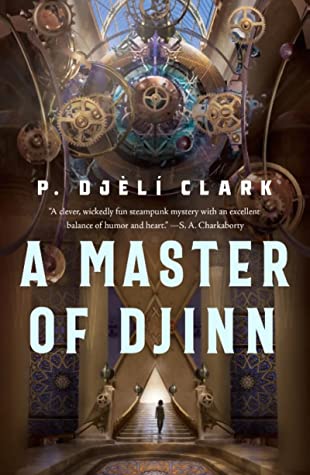
As a genre, fantasy has been focusing more and more on stories that eschew Tolkein’s vaguely medieval, Western European worldbuilding. There’s still tons of elves and orcs and wizards and whatnot out there, but this year’s Hugo nominees tend towards more diverse settings and magics. P. Djèlí Clark’s alternate Cairo is an interesting place, but the format of the novel remains familiar. It’s a police procedural, complete with a fantastical mystery, some political intrigue, even a heroine who insists that she works alone forced to partner up with an enthusiastic rookie cop.
At its best, this novel sets up situations that are resolved with a duel of wits, as when Fatma makes deals with a djinn (who are famously tricky in their literal, punishingly ironic interpretations of requests). At its worst, you get a climactic battle with a Wild Wild West-style mechanical djinn. Spoilers, I guess, but while you probably won’t see that particular tidbit coming, the Scooby Doo-esque villain reveal was the least surprising thing in the book. In between, we’re left with a series of scattershot tangents and various character bits that don’t entirely land.
It doesn’t help that the mystery at the core of this novel isn’t particularly well done. Fatma is great at dealing with djinn, but she doesn’t seem to be much of an investigator. When the story awkwardly turns towards a more international intrigue angle, Fatma is even less impressive (this turn feels much more like an excuse for Clark to delve into the perils of colonialism, a favorite topic of the Hugos over the last decade, and boy do the British take a pounding here). As usual with this sort of thing, Clark tries to head off this complaint by explicitly calling it out in the story: when someone tells Fatma something she should have discovered herself, she thinks “what kind of investigator was this unaware of what was going on right in front of her eyes.” Indeed! Unfortunately, self-awareness of incompetence doesn’t make up for that incompetence (this is a particular pet peeve of mine; clearly others are fine with it.)
Another example: throughout the story, Fatma runs into an acolyte to one of the old Egyptian gods. Every time she sees him, she’s struck by his odd appearance, and it seems like he’s actually transforming into the god he worships. You’d think that an agent of the Ministry of Alchemy, Enchantments and Supernatural Entities, living in a world with djinn, goblins, ghouls, and all manner of magical objects would at least consider the possibilities, but she simply writes it off as a crazy man disfiguring himself (spoiler alert: he’s not.)
It’s an interesting setting, but all too often, despite the ample cultural vocabulary and distinct locations, it’s only used as window dressing for a derivative story. That’s not inherently a bad thing, and I’m sympathetic to a familiar trope if it’s executed well. This isn’t a terrible novel, and there are times when it captures that X-Files-style procedural transported to a historical Cairo vibe that the premise calls to mind (a type of story that scratches an persistent itch for me), but there’s nothing here that makes me think this is the best genre novel of the year.
She Who Became the Sun, by Shelley Parker-Chan – In 1345 China, the starving peasant Zhu family is hanging by a thread. When a bandit attack orphans the two children, and the son quickly succumbs to grief and starvation, this leaves the daughter alone to fight for survival. She hatches a plan to use her brother’s identity to enter a monastery as a young male novice. There, she must hide her true identity as she learns what the monastery teaches. Once the monastery is destroyed, she joins the rebellion against Mongol rule, eventually becoming a general destined for greatness.
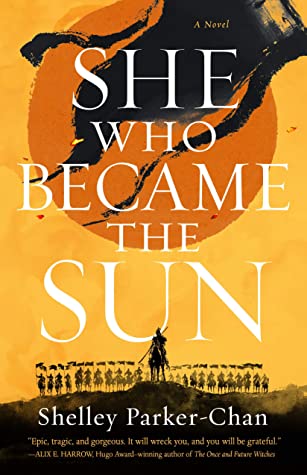
This is basically a fictionalized account of Zhu Yuanzhang, the founding emperor of the Ming dynasty. The key difference here, of course, is that he was not a woman in disguise. The premise of a woman taking on a man’s role is a classic trope, and while this obviously calls to mind Mulan, She Who Became the Sun is obviously a much more serious take on the idea.
The gender swap is clearly the driving force behind the story, and the implications are many. For instance, when Zhu joins the monastery, she must be careful to avoid feminine-gendered tasks:
Zhu felt a sickening lurch, as of the world reorienting itself. She’d assumed that everyone could braid, because to her it was as natural as breathing. It was something she’d done her whole life. But it was a female skill. In a flash of insight so painful she knew it must be true, she realized: she couldn’t do anything Chongba wouldn’t have done.
Later, as she rises through the ranks in the rebellion, she leverages these gendered roles to win battles in unexpected ways. The character of Zhu is well established and explored throughout the novel. Later, though, a secondary protagonist appears. The Mongol general Ouyang was the last surviving son of a Chinese family sentenced to death by the Mongols. To avoid death, Ouyang accepted castration and servitude to the Mongols, eventually rising through the ranks, in part thanks to his relationship with the prince’s heir, Esen. Unfortunately, Ouyang’s story feels a bit awkward and extraneous, especially as it gets encumbered by the court intrigue between Esen and his brother Wang. Still, the gendered nature of Ouyang, frequently described as having a feminine appearance, is a sorta mirror of Zhu’s experience. I can see why this secondary story exists, but it muddles the overall narrative a bit and impacts pacing as well.
The story is punctuated with various battles and political scheming that befits your typical epic fantasy, and some of these are well done, but it’s clear the focus here is on characterization and in particular, the sexuality and gender of our characters and how they subvert or queer gender for their own purposes. Another aspect of this story that I don’t see people talking about is how one’s expectations and seeking out of greatness and power can hollow out the soul. Zhu frequently laments that her actions have crossed a line that she will have to pay for dearly in the afterlife, and these actions get more and more troubling as the story goes on. While successful on these character building fronts, it’s another tick against the momentum of the story.
I can see why this novel is popular with Hugo voters, who have an obsession with gender and sexuality, but the biggest complaint I have here is that this is barely a fantasy. It reads much more like historical fiction than anything else. There are some scenes where Zhu sees ghosts, but they play no role in the story at all and are there purely as a symbolic or thematic note. I guess this is sorta alternate history, but there’s not really a sense of “what if” going on here (the result is ultimately the same as our history). I will fully admit that I’m not exactly the target audience for this book, but I’m glad I read it, and I do think it’s really well done. I’m just struggling with how to rank it within a genre that it doesn’t really represent very well…
Light from Uncommon Stars by Ryka Aoki – Once upon a time, Shizuka Satomi made a deal with the devil. If she doesn’t deliver seven souls to hell, she will forfeit her own. A violinist by trade, Shizuka has already enticed six of her students to sell their souls for fame and success, and she is now searching for her seventh and final student. Katrina Nguyen is a transgender runaway with no prospects, but she catches Shizuka’s eye (or, er, ear) with her raw talent and obsession with violin. Oh, and there’s also an incognito alien refugee who owns a donut shop that Shizuka falls in love with, just to complicate matters further.
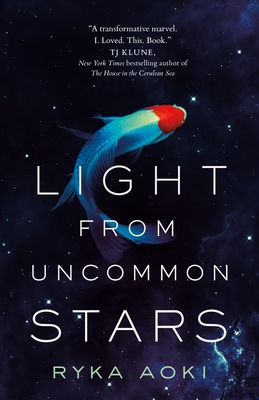
This might seem like an odd agglomeration of plot elements and it really shouldn’t work as well as it does, but color me surprised at how much I enjoyed this novel. Sure, it’s obsessed with sexuality and gender, just like the grand majority of Hugo nominees over the past several years, and the occasional passage feels more like a Twitter talking point than prose, but this novel does back that up with a deeper exploration of those surface level ideas.
The kindness that Shizuka shows towards Katrina is well established throughout the story, and the traumas of Katrina’s past mean that Shizuka has much to learn as well as teach. Of course Shizuka’s kindness is tempered by the ultimate fate she intends for her student, which is a source of tension that drives the story. Indeed, it almost feels even more cruel to show that sort of kindness only to condemn someone’s soul to eternal damnation. But without getting too into spoilers, this is ultimately a hopeful story.
While this is clearly an atypical fantasy novel, we’re treated to numerous procedural bits and details that would interest someone with a science fiction mindset. For instance, there’s several sequences involving a woman at a violin shop who repairs and restores violins, and it’s not just a passing reference. The book goes in depth on carpentry, wood, strings, bridges, famous historical violins, even cursed violins. Shizuka talks a lot about what makes music tick, and while the novel clearly doesn’t gloss over the transgender social elements, much of it is discussed in relation to music. There’s lots of things that Katrina does that are driven by her identity that are almost ironic compared to what Shizuka is used to from her students. Where A Master of Djinn used its Egyptian setting as window dressing for a conventional story, this book more thoroughly integrates its disparate elements.
For instance, at one point in the story, Katrina’s trans identity is revealed online (by a demon, naturally) and her Youtube videos, which previously had lots of comments about how inspiring the music was, start attracting vicious culture war comments and so on:
Furthermore, Shizuka immediately noticed something even more insidious than the hate. For not all the responses attacked Katrina’s womanhood. Some people where vehemently defending her right to gender representation. Some were calling out racism. Some messages were well wishes and hearts and “Your so inspiring,” and “Good luck.”
Some people were accusing others of being Nazis, while others said Katrina deserved justice.
But in all this, where were the comments about the music?
Culture war stuff can be exhausting in part because it reduces people’s identities to one simple axis, and everything else gets lost in the shuffle. Here, Aoki is able to maintain a more wholistic sense of character dynamics.
There are some things that didn’t quite work for me. I tended to appreciate the donut shop aliens more than most readers, but the “Endplague” that they are trying to escape from isn’t particularly well explained. Stylistically, Aoki has a tendency to shift perspectives frequency. Not just chapter to chapter, but mid-scene or mid-conversation. This can be a bit disorienting at times, and while some authors can get away with this (Pynchon comes to mind), I can see this stylistic tic rubbing some folks the wrong way. Ultimately, these are only minor issues for me.
One again, I’m probably not the target audience for this novel and it touches on lots of things that don’t especially interest me… Like, I enjoy the occasional donut and violins can make great music, but I’m not exactly intrigued by either subject (and I don’t mean to imply this is all that’s in the book, these are just two examples). But he way that Aoki weaves all of this together impressed me, and made me interested in things I normally wouldn’t seek out. It’s quirky and weird and doing something new with well worn tropes (it’s not as if Faustian bargains are an untapped sub-genre, you know) in a way that clearly isn’t for everyone, but which worked surprisingly well for me. It’s clearly my favorite of the fantasy nominees, and I’ll probably rank it higher than at least one of the SF nominees (even if this probably won’t take the top slot).
That about wraps up the 2022 Hugo Awards novel finalists. Top slots in my ballot will probably be Project Hail Mary and Light from Uncommon Stars.
